The best horror games
Looking for the best scary games? Whether you're into jump scares, interactive fiction, thematically interesting stories or just large men running after you with a chainsaw, we've filled this list with a wide variety of games that'll hopefully freak you the hell out.
Like our lists of best strategy games, best FPS games, and best free PC games, we tried to focus on a variety of horror experiences that still hold up well today, though we've expanded the remit slightly to include a few retro curios as well. For more, also check out our overall list of the best games to play today.
Phasmophobia
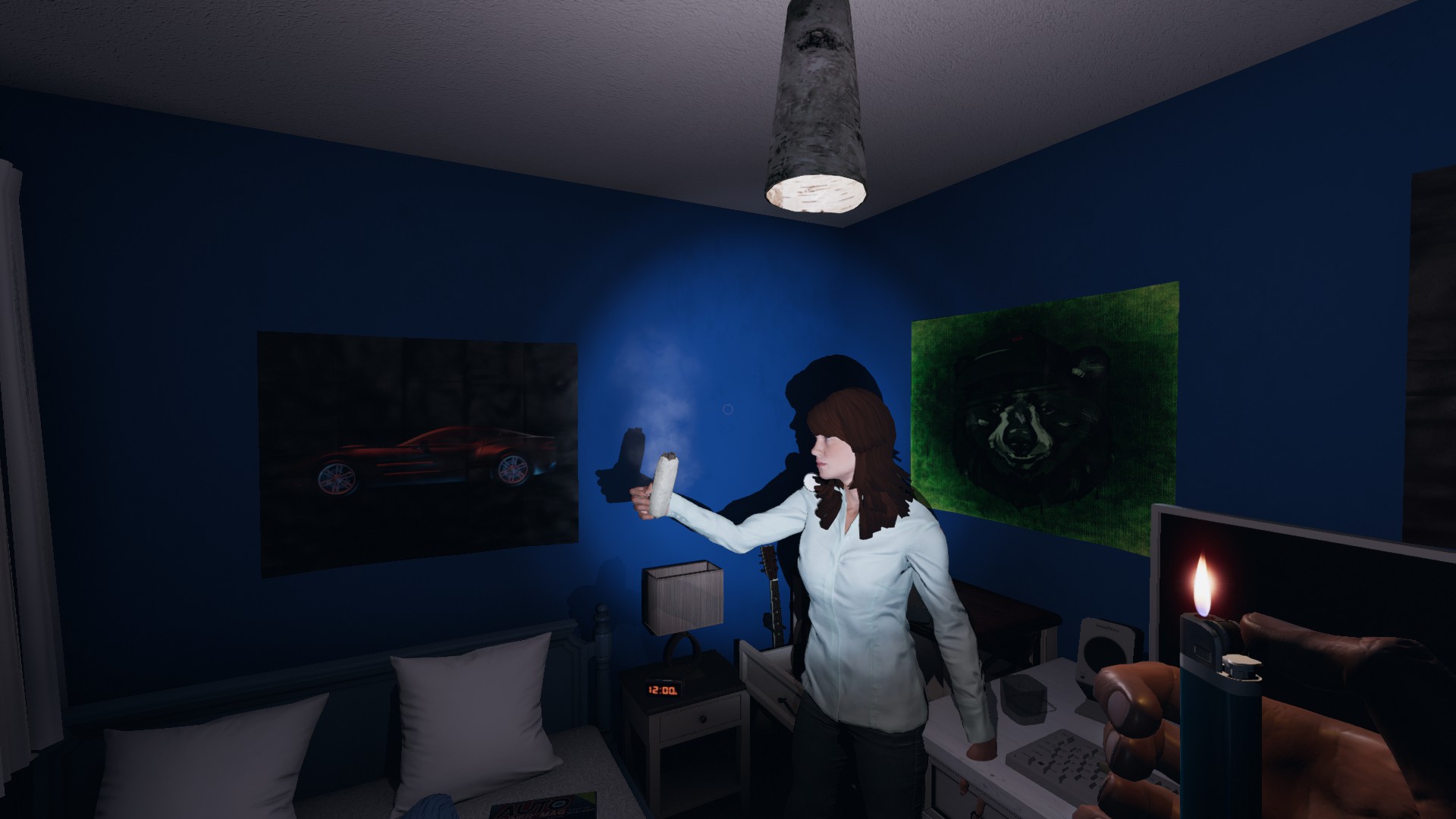
All the rage on Twitch, this is a group detective game that Rich called "the best ghost game ever made." With other players, you'll investigate haunted places to determine the nature of the spectral entity involved using an EMF reader, UV flashlight, and other tools—picture the ghost hunting shows on TV.
If you've so far managed to avoid watching someone else play this Early Access phenomenon, and you want to be spooked, read nothing else and go figure it out with some friends. It's best when you're all learning, and being tormented by ghosts, together.
Resident Evil 2
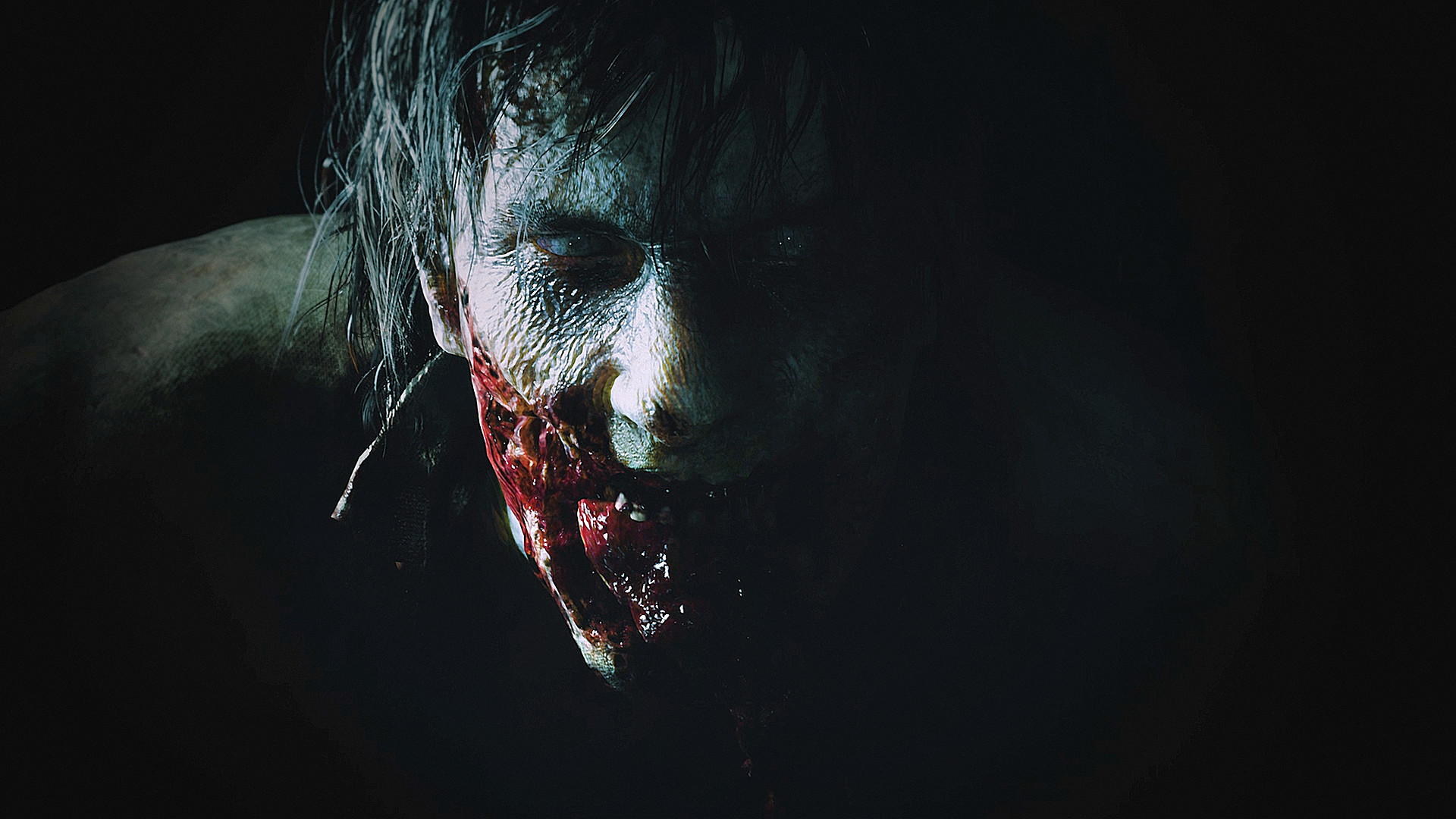
Best of the best
Capcom's Resident Evil 2 remake does something that almost doesn't seem possible after decades of horror games: it makes zombies seem scary again. The shambling horde feels properly menacing—seemingly unstoppable lumps of slow, shambling flesh that beat down doors, spill through windows and just keep coming. This is a return to the survival horror style that made Resident Evil famous, and a clever reimagining of one of its most iconic locations. It's a treat for those of us who played the original, but also an accomplished and clever horror game in its own right.
If you prefer your scares in first-person, Resident Evil 7 also remains a grisly treat—especially the creepy first half.
Control
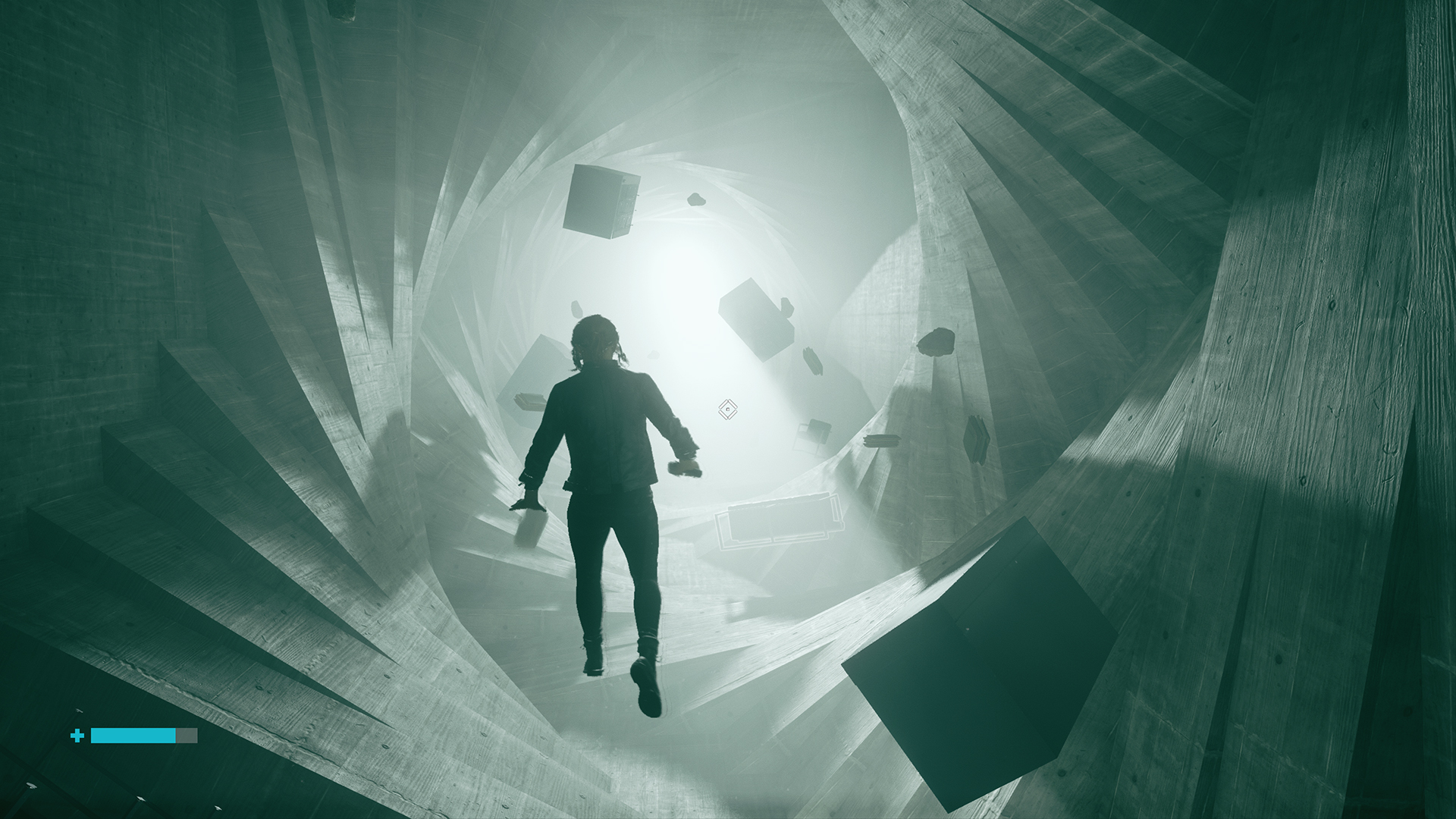
It's not horror in the traditional sense—undeads, gore, teens making terrible decisions—but Remedy's latest excels at surreal bureaucratic dread. As the new director of the Bureau of Control, you explore a strange, shifting office full of possessed workers, mysterious objects of power and The Board—an ominous inverted pyramid that speaks almost exclusively in synonyms. And hey, if you do need some honest-to-god terror, just watch an episode of the game's in-universe puppet show, Threshold Kids.
System Shock 2
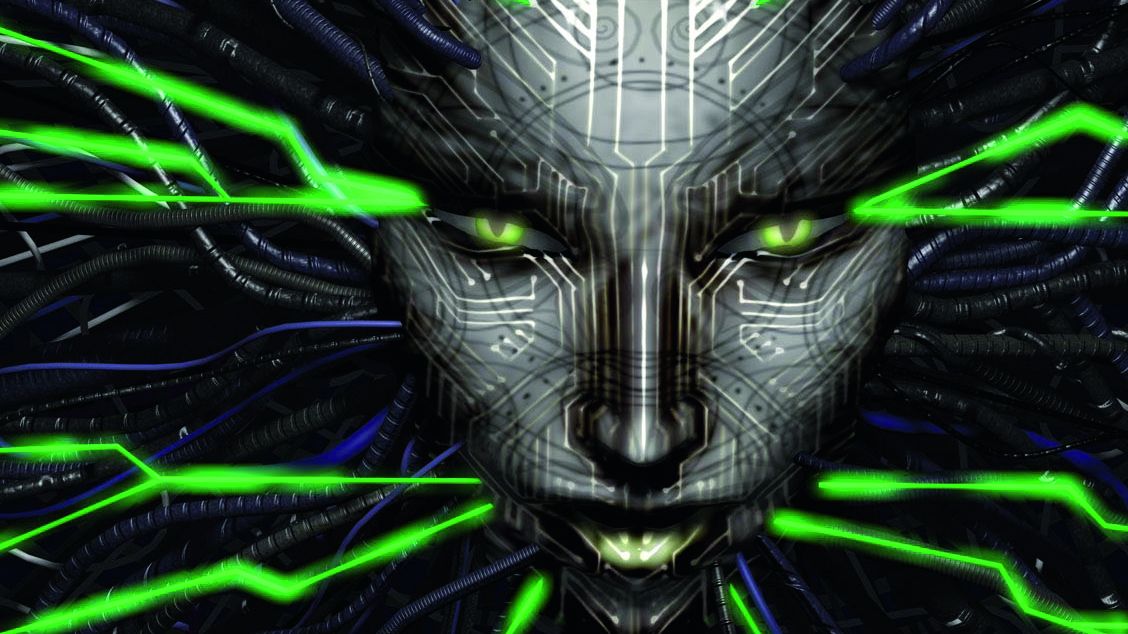
Before BioShock was BioShock, it was System Shock: an altogether freakier combination of RPG and FPS, and one that in its second (and best) iteration told the story of a rogue AI on a haunted spaceship—that rogue AI being the incomparably uppercase SHODAN. The murderous artificial consciousness paved the way for GlaDOS of course, but its the combination of meaningful character advancement, rewarding exploration, horrifying enemies and (at the time) the novel use of audio diaries that make System Shock 2 such a memorable horror game. It was essentially Deus Ex on a spaceship—if you've ever played Deus Ex, or been on a spaceship, you can imagine how delectable that sounds.
Alien Isolation
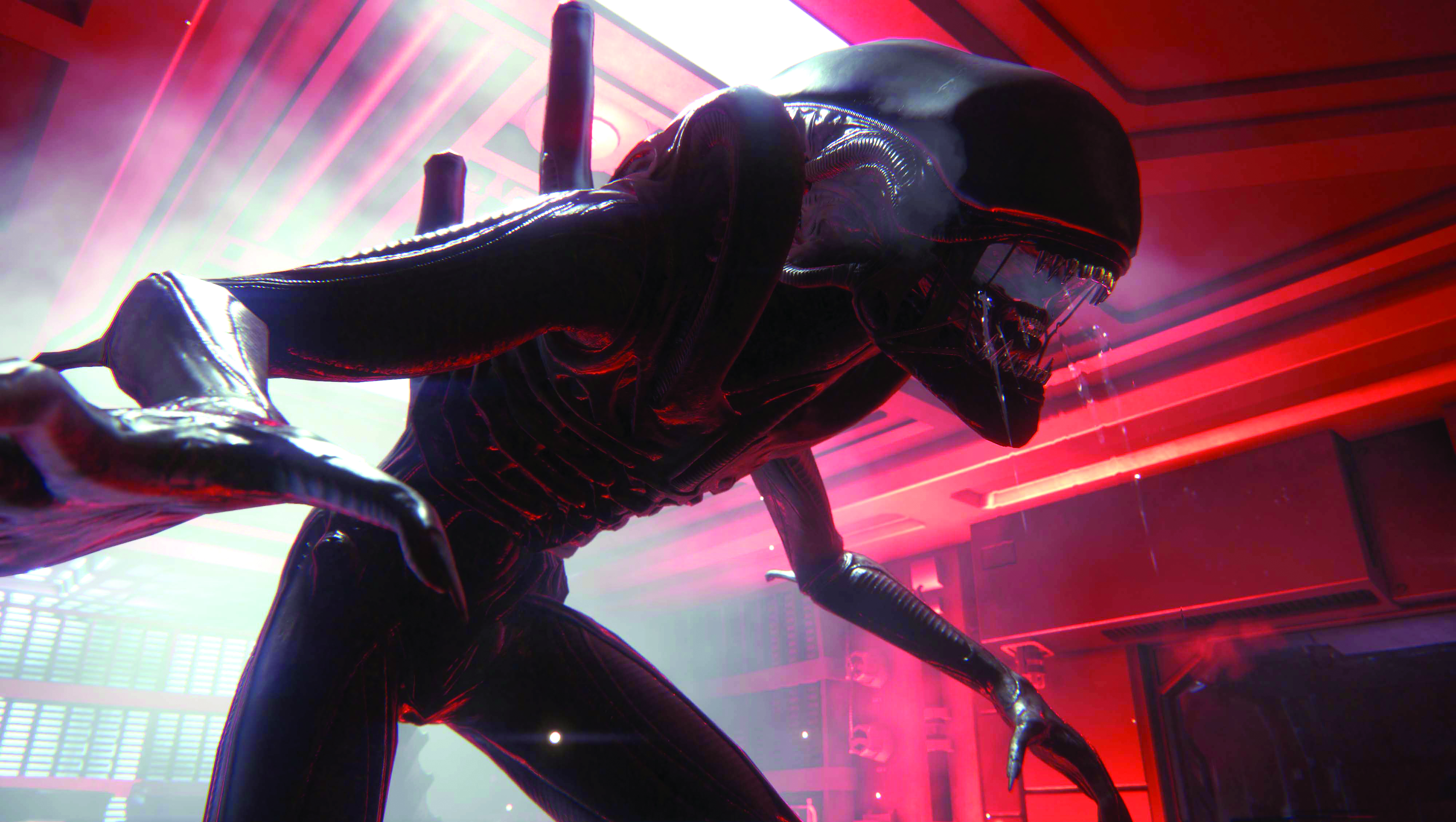
The best Alien game ever, by a long way, Alien: Isolation stars the smartest, scariest enemy in any game. The Xenomorph's killer instinct is matched only by its curiosity. It learns more about the Sevastopol's nooks and crannies as it hunts you over the course of 12 hours, ripping doors off closets and peering under tables in search of prey. The motion tracker can help you to avoid its grasp, but it can sense the sound, and even the gentle green light of its screen, making every glance a risk. When the game forces you into the vents and you can hear the creature in there with you, Isolation becomes one of the scariest games ever made.
Oxenfree
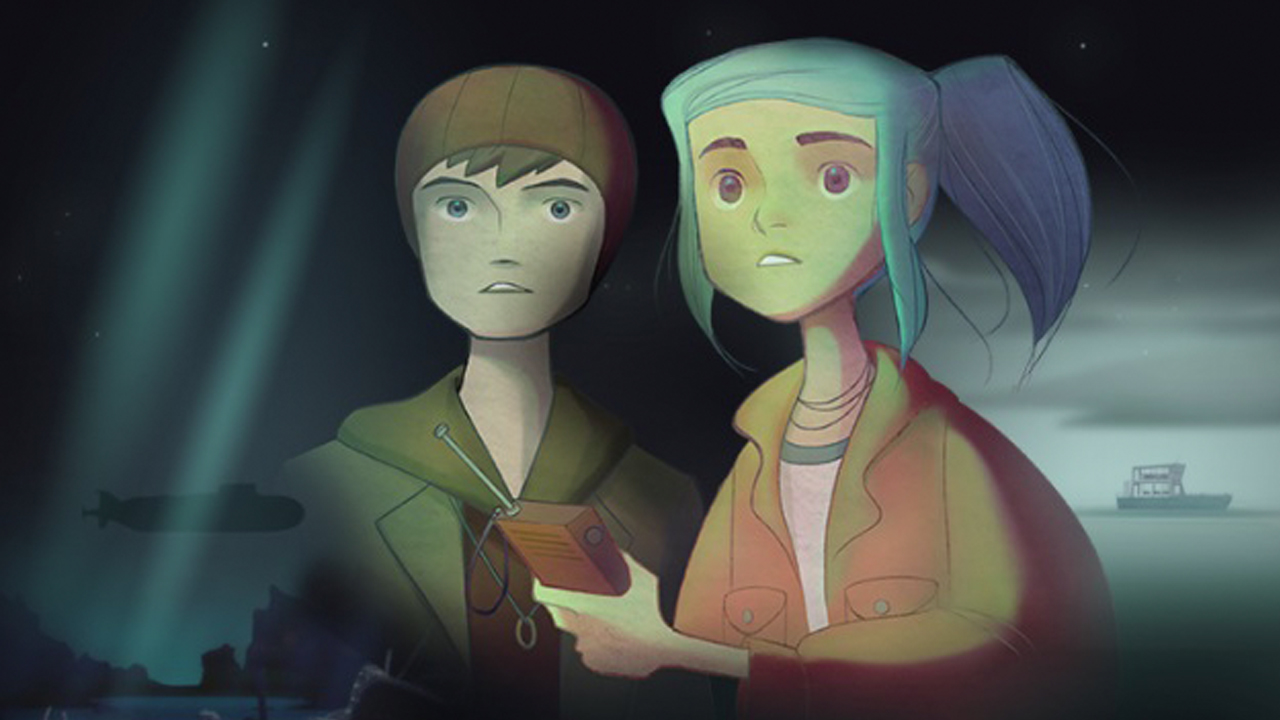
An eerie indie treat, Oxenfree stars a group of teens who become trapped on an island full of strange and mysterious happenings. The real joy is the banter between your friends (and grudging acquaintances), which mimics the fast-paced witty dialogue of a good teen horror flick. As you progress, the island becomes increasingly strange and unnerving, and Oxenfree deploys some clever tricks to hold your attention and keep you second guessing throughout this ghostly yarn.
Man of Medan
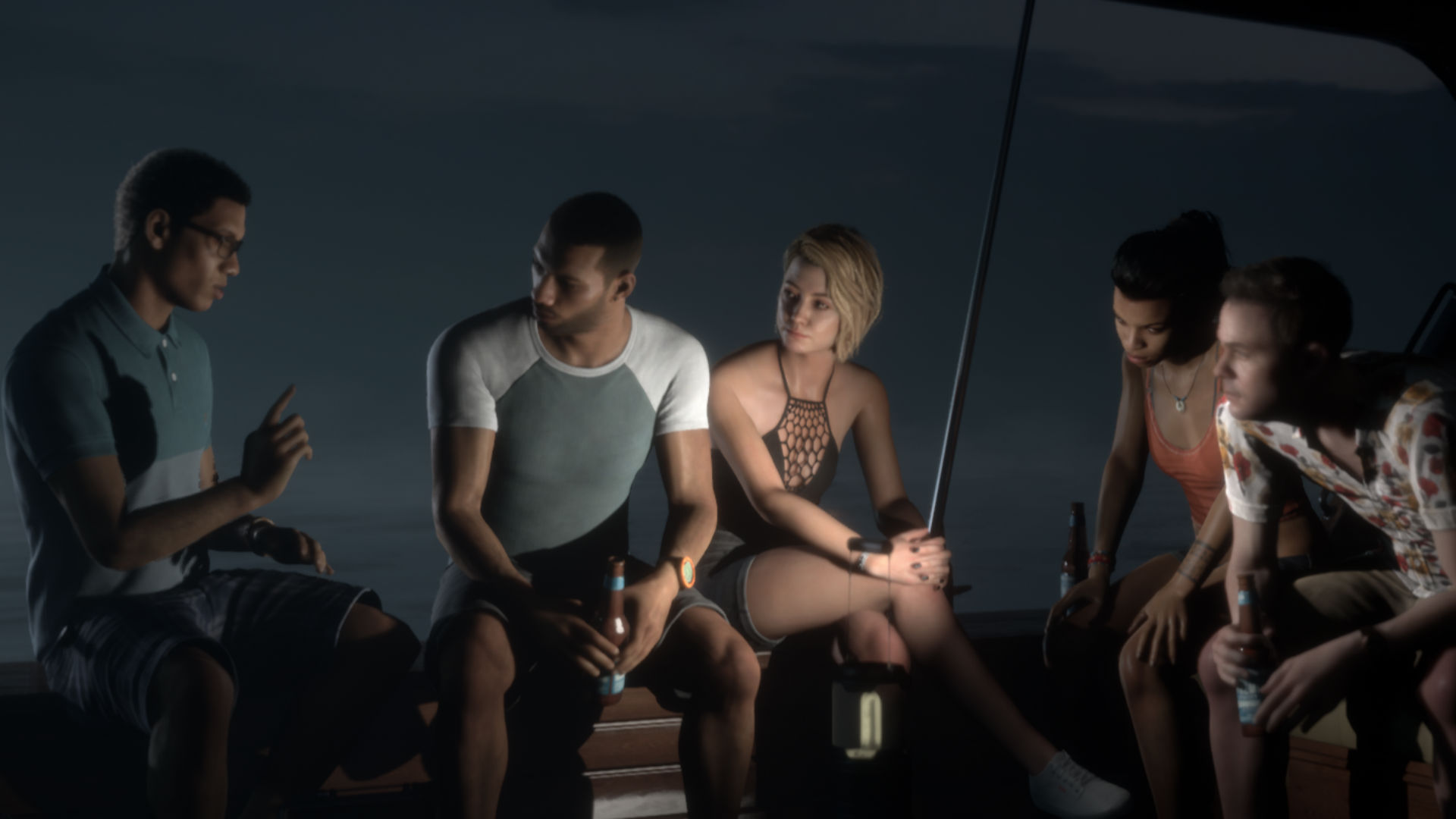
Man of Medan, like most horror movies, is best experienced with mates. You control a group of friends stuck on a ghost ship, exploring and making split-second decisions that may very well end in death. It's a tricky ship where you can't trust your eyes, or your co-op partner, who might be seeing something entirely different. It's B-movie fare, but the jump scares are top quality and you'll be a paranoid wreck by the end.
Darkest Dungeon
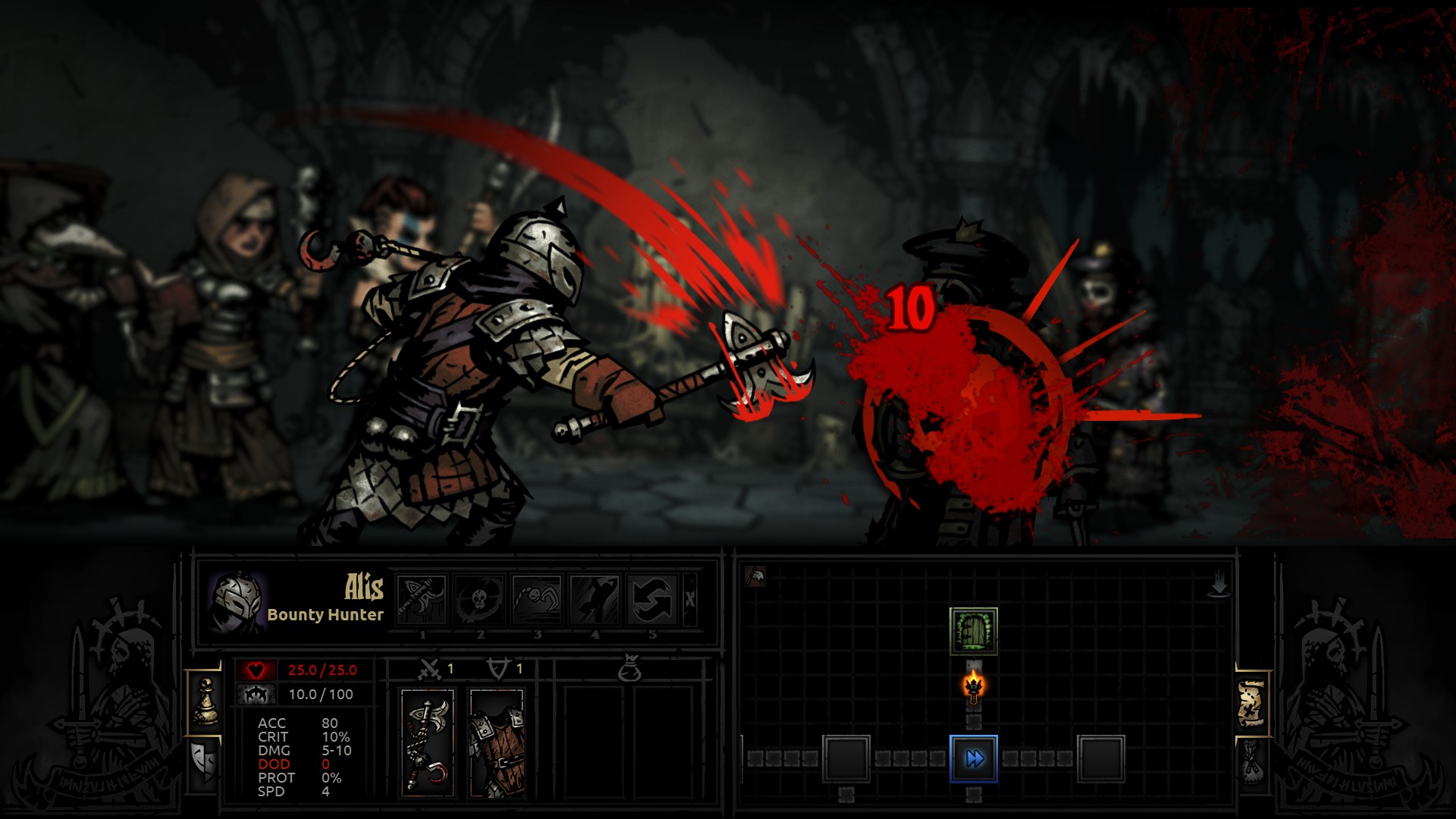
Darkest Dungeon is cruel roguelike where stress is a lot more trouble than the armies of monsters your squad will have to slay. There are plenty of external horrors, but it's the impact they have on your adventurers that will unravel your journeys under the haunted mansion and beyond. They'll develop vices and fears and personality traits that make subsequent adventures harder, forcing you to find more and more victims to toss into the meat grinder.
Outlast 2
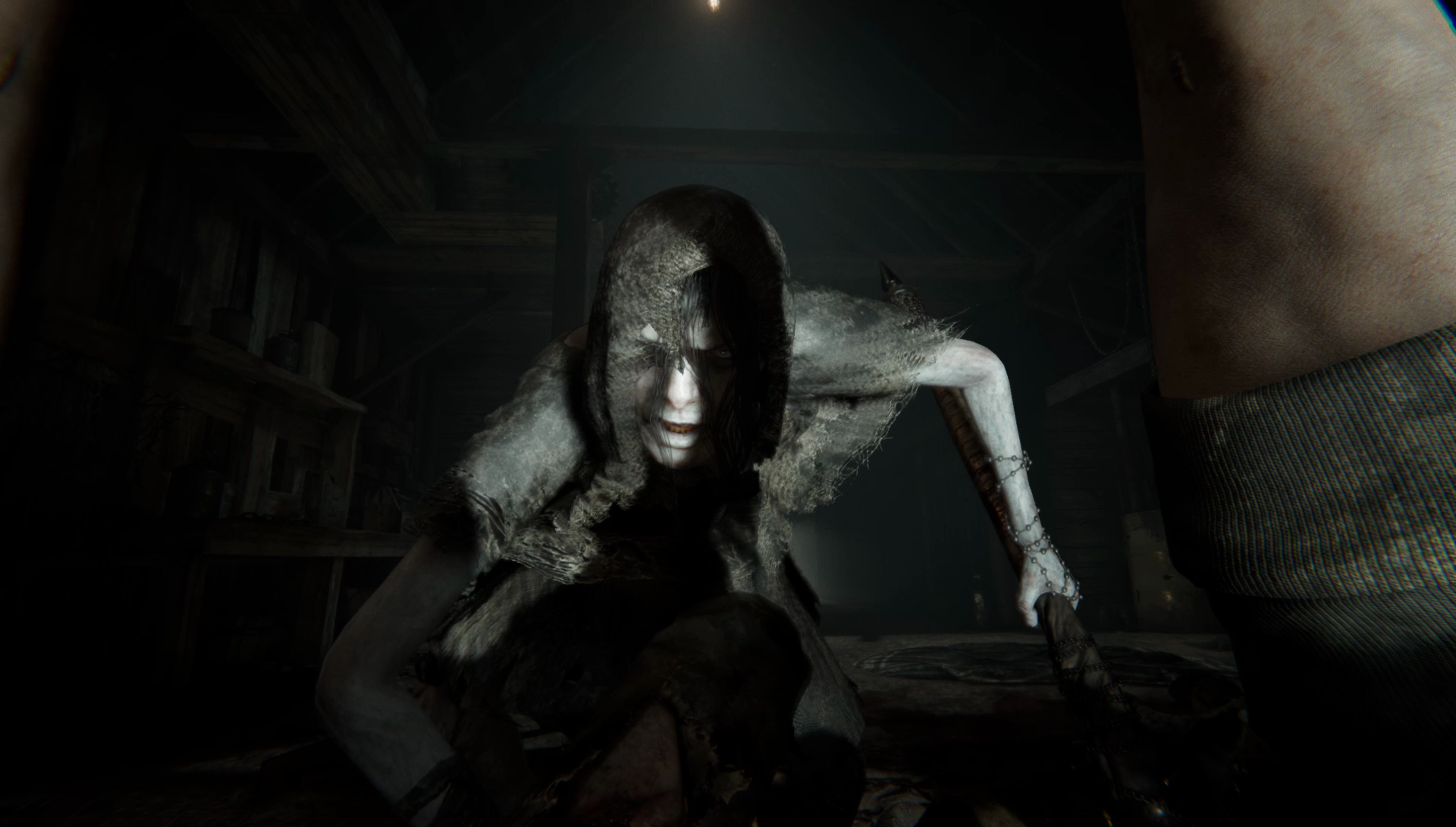
As a trial-and-error stealth game, Outlast 2 might not be for everyone, but thematically it's among the more interesting games on this list. Playing as a journalist searching for a missing woman in Arizona, your wife is then kidnapped early on by a deranged cult, the origins of which are told through snippets of letters during the game. You navigate dark environments using the night vision mode of your camera, and it's just scary as heck, with a whole village wanting you dead and some of the most gruelling imagery ever put into a game.
Inside
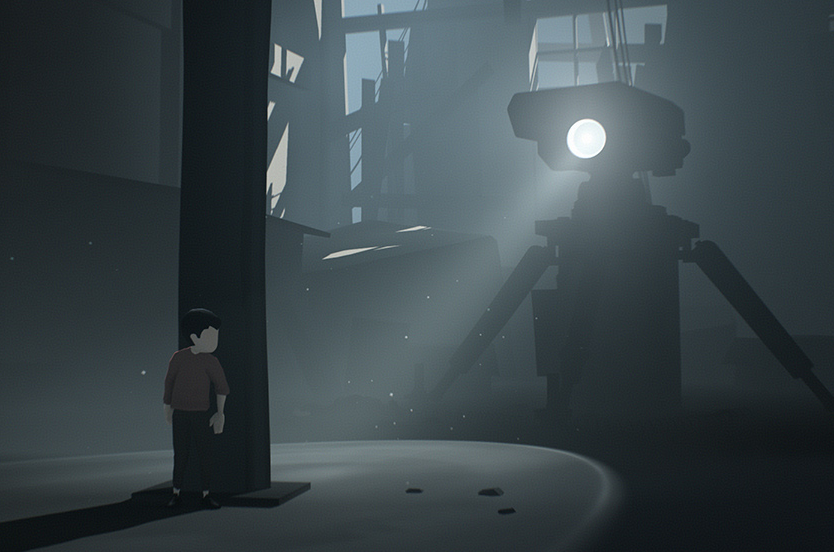
An unrelentingly bleak platformer that puts you through a gauntlet of hellish imagery: creepy mermaids, security robots, people hunting you down, nasty weather and more that we won't spoil here. Inside's vision of a cruel dystopian world that's out to kill you at all times is extraordinary, even if the moment-to-moment platforming is pretty familiar and can be frustrating. You're mainly playing it to experience the setting, really.
See also Little Nightmares, a similar type of horror platformer that isn't as scary but is arguably just as inventive.
IMSCARED
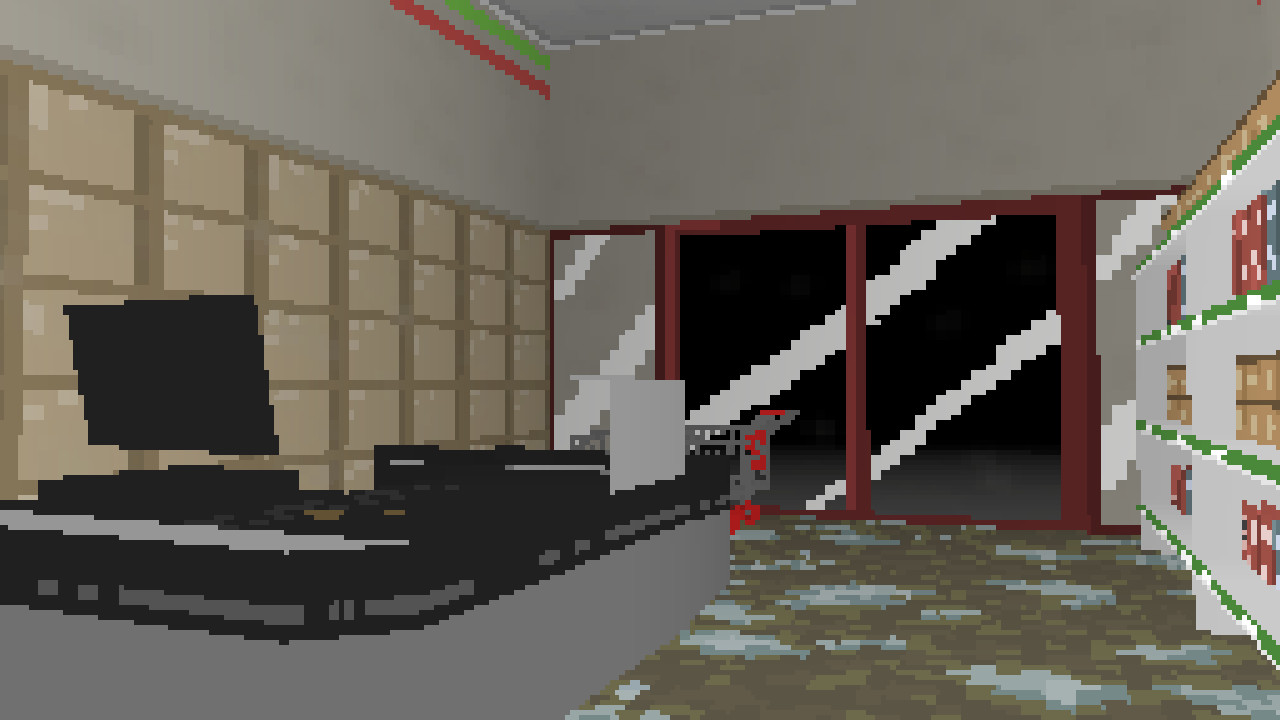
Don't be put off by IMSCARED's rather tedious "A Pixelated Nightmare" tagline—it is easily one of the most unsettling games available today. But it's also a tough one to pitch, because much of its terror lies in the surprises that shouldn't be ruined by a meagre 150 word-long recommendation. Know that it borrows from 90's horror games via its aesthetic and fourth wall-breaking, file-bothering makeup; and that it consistently strives to surprise and keep players guessing. Understand that it'll play with your emotions, and drop you into a confused and confusing world while incessantly goading you till its final breath.
Don't expect jump scares, but do expect to be scared enough to jump from your chair. The 2012 GameJolt version of IMSCARED is free, while the full, extended version is cheap as chips over on Steam. If you think we're at all grandstanding here, please be our guest and give it a try. We'll be hiding behind the couch.
Thumper
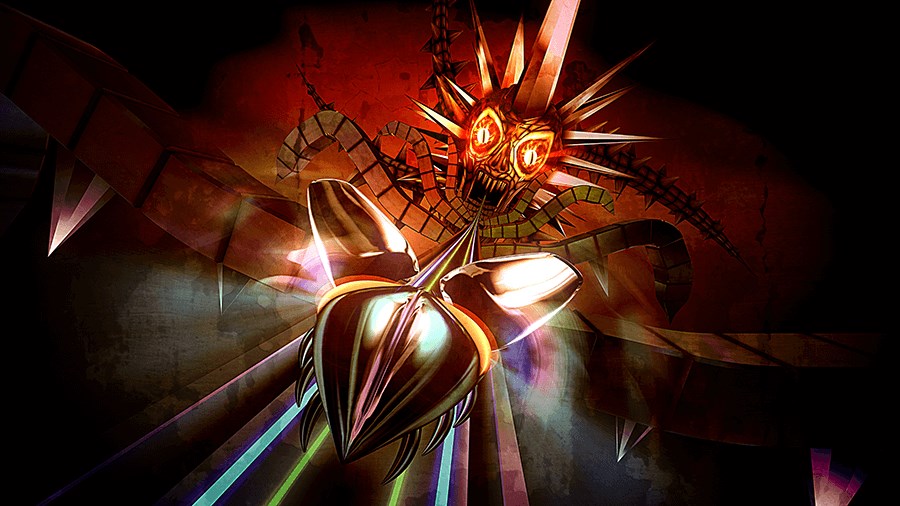
A rhythm action nightmare in which you play a silver beetle speeding down a track into the mouth of a huge demented boss head. Death comes quickly. Miss a couple of turns and you're dashed into a million glittering pieces against the courses metal banks. Miss a beat in the gaze of the ring-shaped guard robots and they'll hurtle towards you, lasers blazing. All the while the ambient soundtrack pulses uneasily and the the rhythms become faster, and more erratic. The effect is one of tense, compressed dread. Probably best to play Thumper in short bursts only.
Silent Hill 2
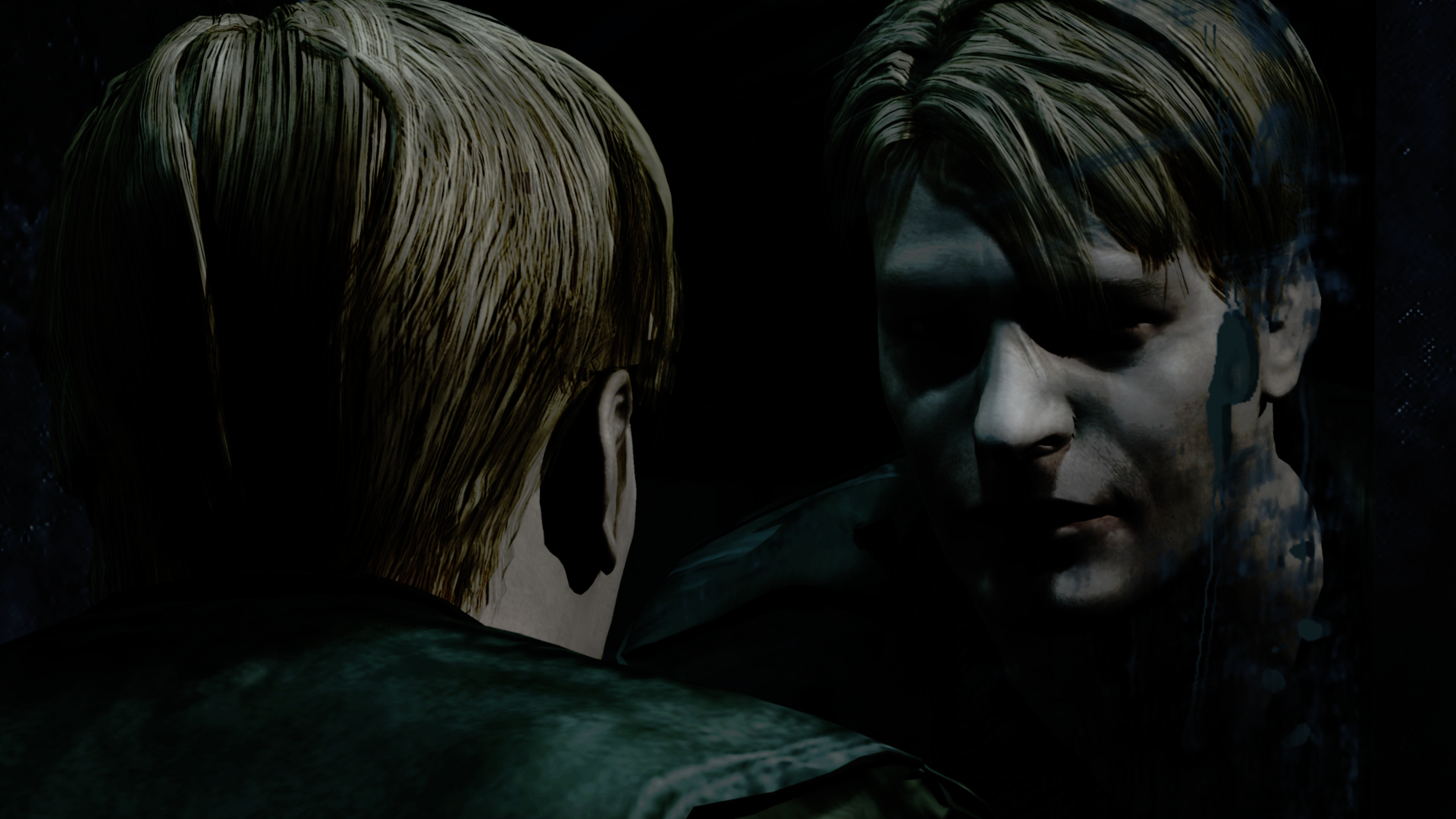
We can all agree that Silent Hill 2 is the best in the series, and although Konami have never made much of an effort with the PC versions, if you factor in mods and texture/resolution tweaks this is probably the best way to play it these days—even if prices for the (extremely rare) retail copies can be pretty extortionate. It was the first game to really push the idea of horror narratives as subjective, fluid and untrustworthy things, with a story that invites interpretation and a semi-sentient city that warps and shifts itself to fit the damaged psyches of its inhabitants. The confusing cult nonsense of the first and third games was pushed to the backburner for the more personal story of a psychologically damaged widower battling his way through a foggy purgatory populated by zombie-things, dog-things, and whatever the hell Pyramid Head was.
Sylvio
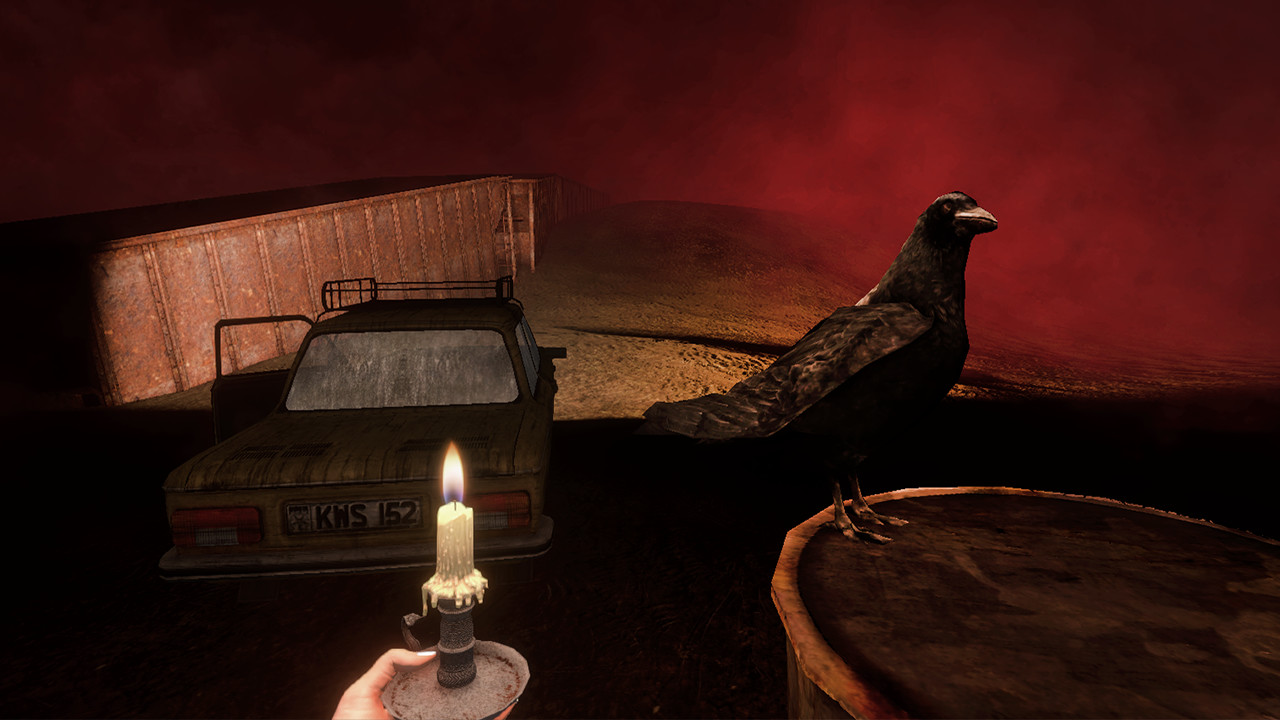
Whereas the likes of Silent Hill and Fatal Frame rely on radios to alert players to otherworldly adversaries, Sylvio uses sound, EVP (electronic voice phenomenon) and audio manipulation as its central ideas. Not only that, the game builds its entire gorgeously creepy world around this principle theme as players strive to uncover its backstories, bizarre plot twists, and insights into its unsettling unknown—all of which is backed up by some stellar voice acting. Generic first-person horror this ain't, and while it does occasionally force tedious combat set pieces upon players, it thrives in its quirky, idiosyncratic moments that are filled with atmosphere and character and dread. Sylvio is a thinking game and is unique within the horror genre.
Anchorhead
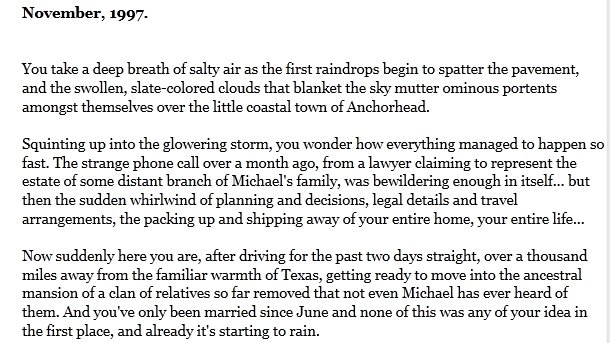
Horror games owe a significant debt to HP Lovecraft, and not just because he's long dead and his work is out of copyright. Plenty of games (too many, really) have included references to his brand of cosmic horror, but Anchorhead is more inspired than most, drawing from several of his novels and stories to tell the tale of the a married couple who have inherited an old mansion in a creepy New England town. The sedate exploration of the game's opening segments eventually give way to tense, turn-limited puzzles as you struggle to stop an ancient, possibly world-ending ritual from being completed. No pressure then. It's free, and you can play it in your browser.
Amnesia: Rebirth
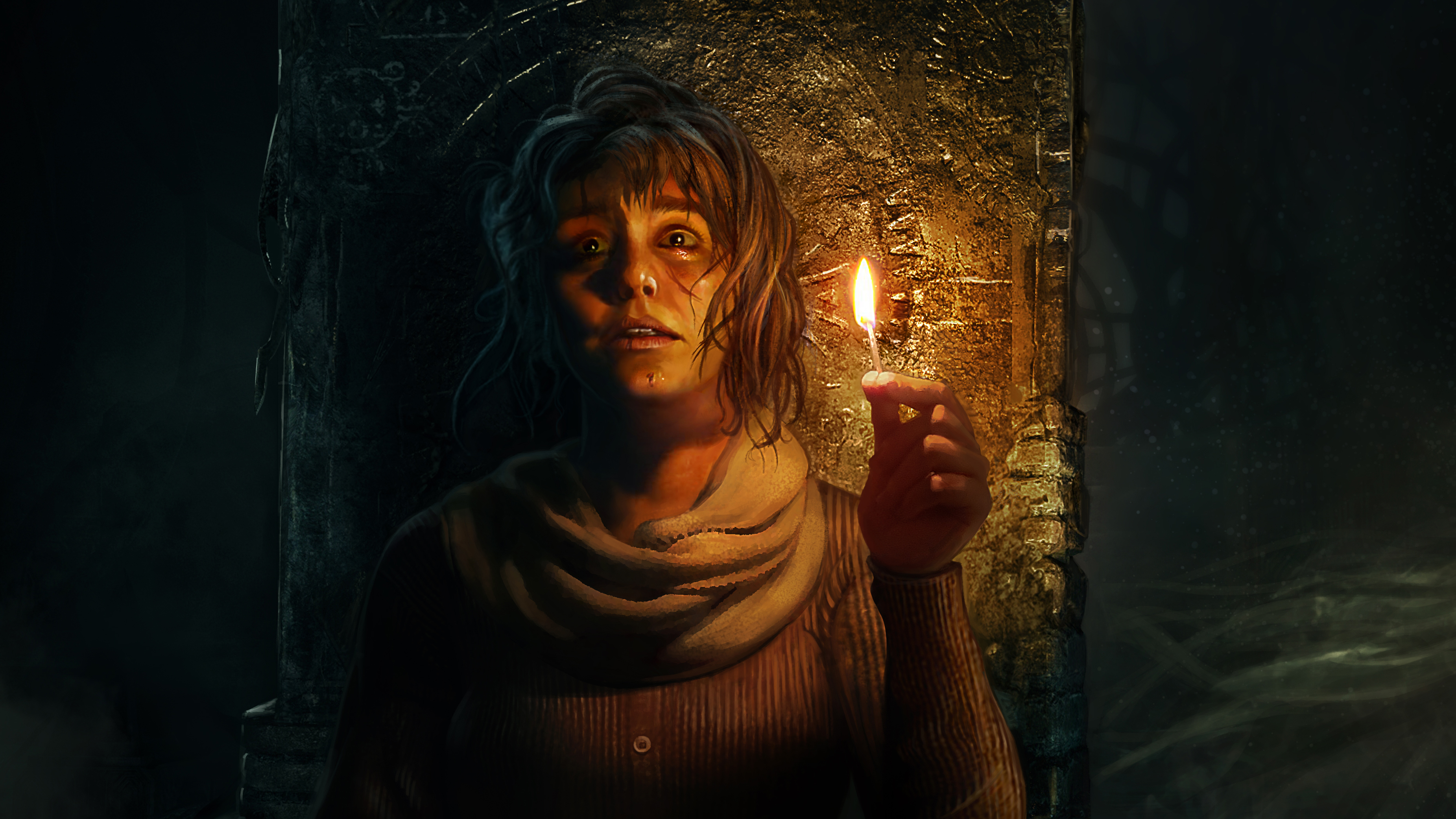
Amnesia: The Dark Descent is great, but if you've already played it or don't mind skipping ahead, the much more recent Amnesia: Rebirth is brilliant, too—and it even turns the horror up a few notches with a "profoundly disturbing" story, as Leana described it in our review. Prepare yourself for an eldritch nightmare amid somewhat dated (but still scary) design and environments.
Pathologic 2
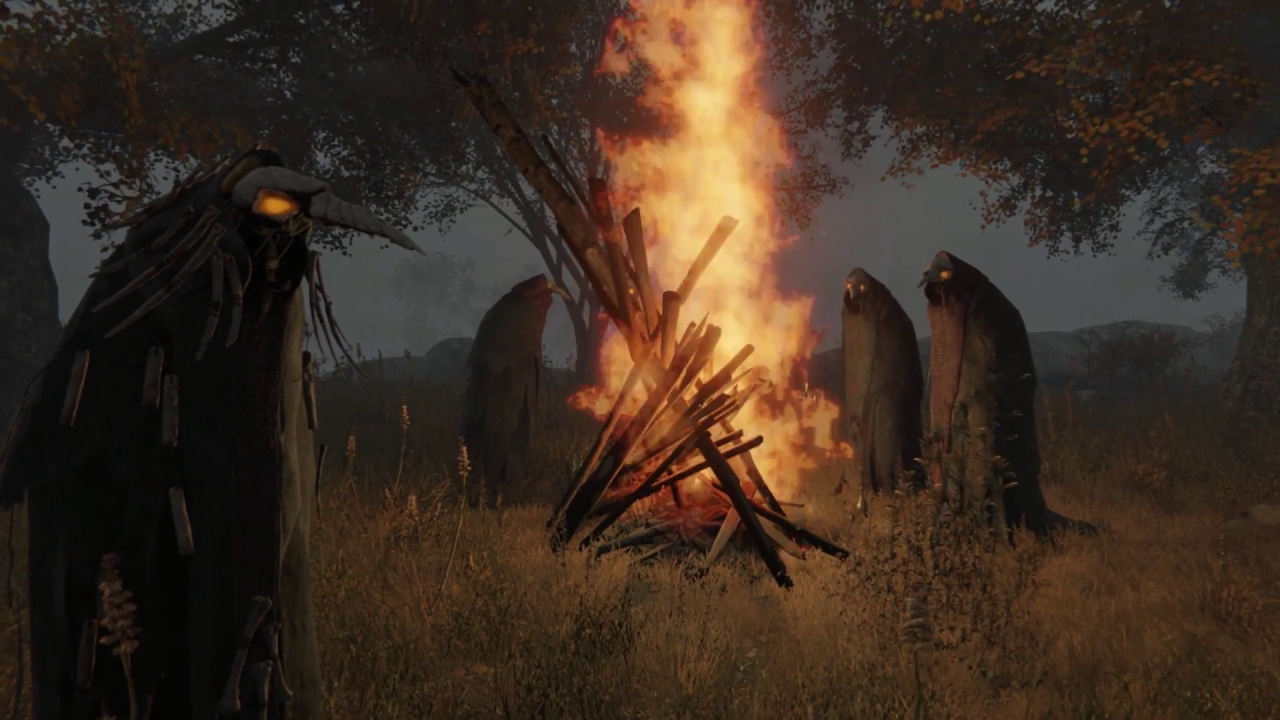
Pathologic 2 is nasty. It will sit on your hard-drive like a gangrenous limb, in need of amputation. If this sounds like a criticism, it isn't. Beyond the dirty, putrefied atmosphere, Pathologic 2 is weird and theatrical, frequently breaking the fourth wall and questioning your role as the player. You have 12 days to save a town afflicted by disease, paranoia, mob justice, and paranormal happenings. That ticking clock isn't just for show—events unfold in real-time and you have to make difficult decisions about what you want to do and who you want to save. It's exhausting, yes. It's gruelling, yes. But it's also unique and unforgettable.
The Evil Within 2
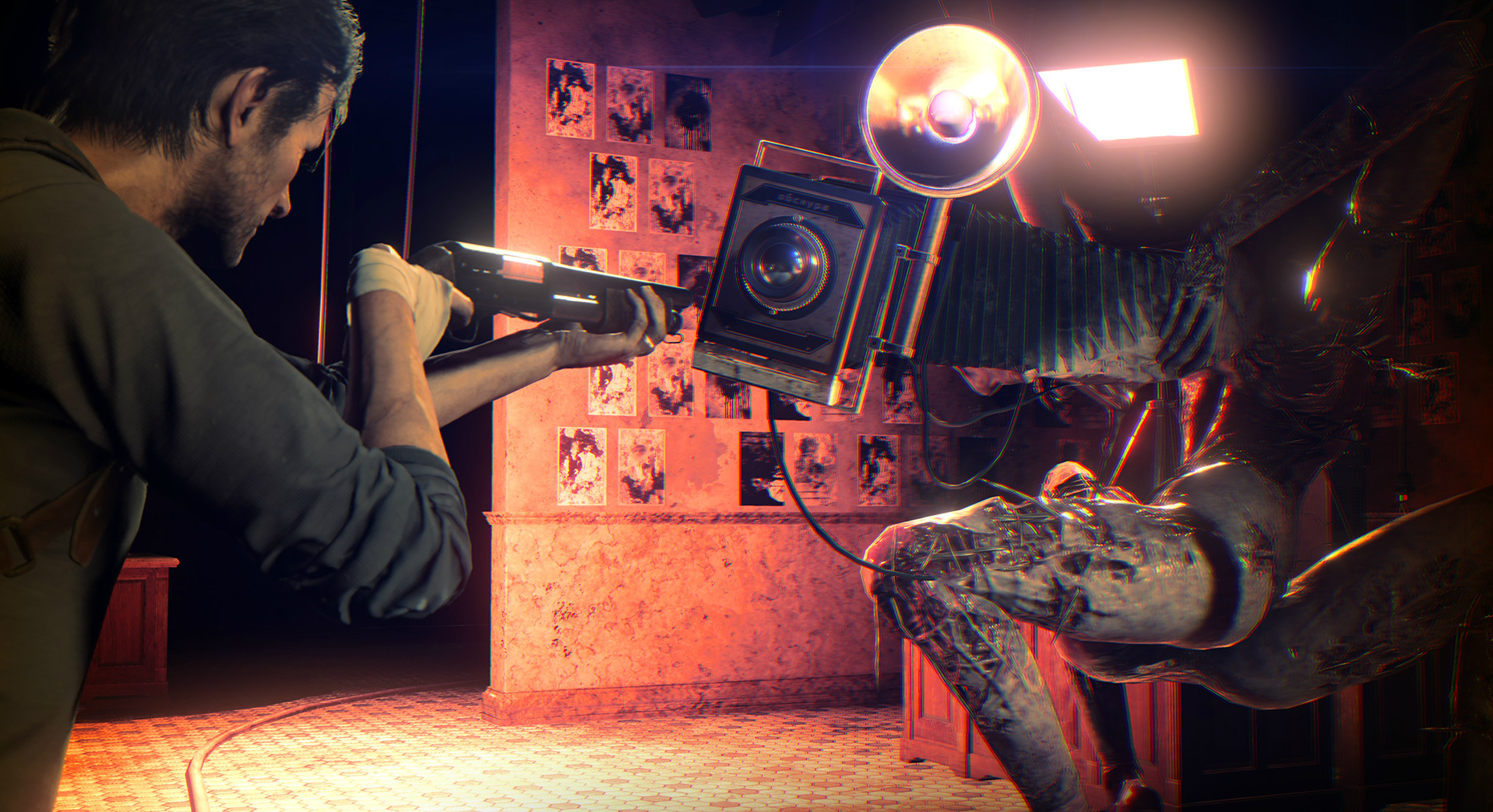
Not content with resting on Shinji Mikami's reputation—he's the man responsible for the best Resident Evil games, as well as God Hand and Vanquish—The Evil Within 2 swaps the purer survival horror of the first game with a more open world full of grotesque and at times stomach-churning sights. This is a psychological horror that aims to find terror away from pure jump scares. It's intense, often thrilling and definitely ambitious.
Of course, if you want the more traditional approach, the first The Evil Within is also worth checking out.
Call of Cthulhu: Dark Corners of the Earth
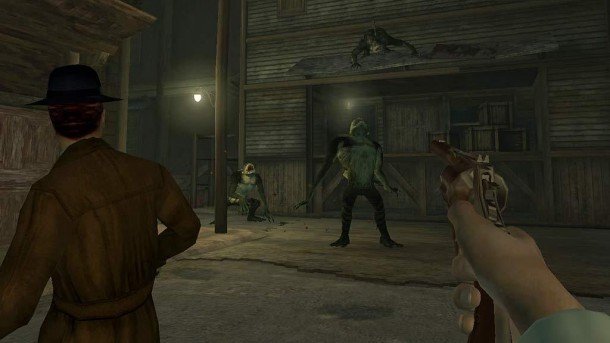
Lovecraft's Cthulhu mythos should be a ripe playground for gaming scares. It rarely works out like that; the fiction often put to use in ways that fail to convey the sheer magnitude of its ancient and maddening horror. Despite the bugs and the clunkiness, Call of Cthulhu: Dark Corners of the Earth is a first-person survival horror that both stays true to its source, and provides a multitude of ideas through its many and varied levels. You'll go from escaping an assassination, to being hunted by cultists, to fighting off Shoggoths and Deep Ones.
Cry of Fear
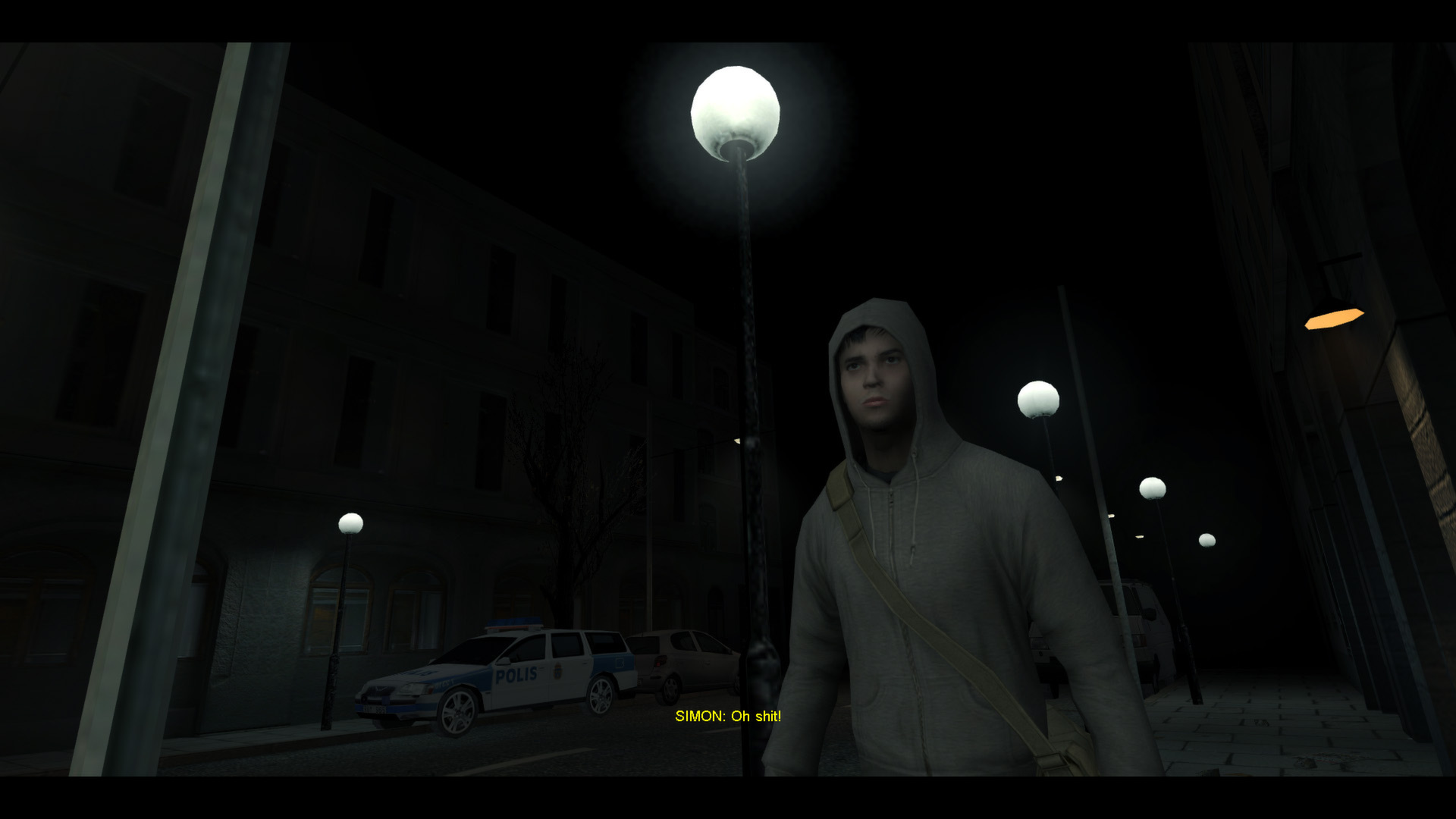
Every minute, roughly fifty billion jump-scare-laden horror games are added to itch.io and Game Jolt, but very few take you on a journey (or at least one that doesn't begin and end in the same dim corridor). Built on the shambling bones of the Half-Life 1 engine, Cry of Fear is at times an FPS, at other times a survival horror and puzzle game, and at all times a cinematically minded experience clearly inspired by the game it's built upon. Many of the best horrors combine genres like this, from Dead Space to FEAR, so it's great to have another horror game that understands the value of variety.
FEAR
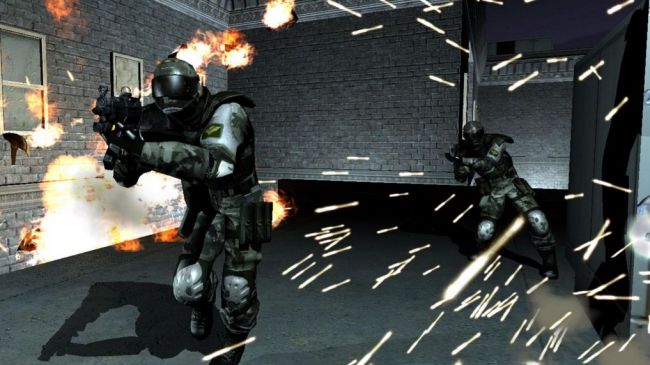
FEAR is a better shooter than a horror game, but is worthy of note for referencing Asian cinema with its creepy villain, Alma, a little girl who can rip people apart with her thoughts. FEAR also exploited the first person perspective to create jump-scares, using ladders and narrow corridors to funnel the player's view through a rollercoaster of linear frights. You catch glimpses of Alma in the corner of a room as lightbulbs shatter, you'll suddenly see her feet at the top of a ladder as you descend, and there's a gratuitous corridor of blood, because The Shining deserves a nod every now and then. First person horror techniques have been honed into a more concentrated horror experience by games like Outlast, but FEAR does let you pin clone soldiers to walls with a stake gun, and kick them in the face in slow motion as they scream “FUUUUUUU” in a low-pitched, slurry expression of terror. The psychological horror themes persisted in FEAR's sequels—FEAR 2: Project Origin and FEAR 3.
from PCGamer latest https://ift.tt/3pPKoQ8
Looking for the best scary games? Whether you're into jump scares, interactive fiction, thematically interesting stories or just large men running after you with a chainsaw, we've filled this list with a wide variety of games that'll hopefully freak you the hell out.
Like our lists of best strategy games, best FPS games, and best free PC games, we tried to focus on a variety of horror experiences that still hold up well today, though we've expanded the remit slightly to include a few retro curios as well. For more, also check out our overall list of the best games to play today.
Phasmophobia

All the rage on Twitch, this is a group detective game that Rich called "the best ghost game ever made." With other players, you'll investigate haunted places to determine the nature of the spectral entity involved using an EMF reader, UV flashlight, and other tools—picture the ghost hunting shows on TV.
If you've so far managed to avoid watching someone else play this Early Access phenomenon, and you want to be spooked, read nothing else and go figure it out with some friends. It's best when you're all learning, and being tormented by ghosts, together.
Resident Evil 2

Best of the best
Capcom's Resident Evil 2 remake does something that almost doesn't seem possible after decades of horror games: it makes zombies seem scary again. The shambling horde feels properly menacing—seemingly unstoppable lumps of slow, shambling flesh that beat down doors, spill through windows and just keep coming. This is a return to the survival horror style that made Resident Evil famous, and a clever reimagining of one of its most iconic locations. It's a treat for those of us who played the original, but also an accomplished and clever horror game in its own right.
If you prefer your scares in first-person, Resident Evil 7 also remains a grisly treat—especially the creepy first half.
Control

It's not horror in the traditional sense—undeads, gore, teens making terrible decisions—but Remedy's latest excels at surreal bureaucratic dread. As the new director of the Bureau of Control, you explore a strange, shifting office full of possessed workers, mysterious objects of power and The Board—an ominous inverted pyramid that speaks almost exclusively in synonyms. And hey, if you do need some honest-to-god terror, just watch an episode of the game's in-universe puppet show, Threshold Kids.
System Shock 2

Before BioShock was BioShock, it was System Shock: an altogether freakier combination of RPG and FPS, and one that in its second (and best) iteration told the story of a rogue AI on a haunted spaceship—that rogue AI being the incomparably uppercase SHODAN. The murderous artificial consciousness paved the way for GlaDOS of course, but its the combination of meaningful character advancement, rewarding exploration, horrifying enemies and (at the time) the novel use of audio diaries that make System Shock 2 such a memorable horror game. It was essentially Deus Ex on a spaceship—if you've ever played Deus Ex, or been on a spaceship, you can imagine how delectable that sounds.
Alien Isolation

The best Alien game ever, by a long way, Alien: Isolation stars the smartest, scariest enemy in any game. The Xenomorph's killer instinct is matched only by its curiosity. It learns more about the Sevastopol's nooks and crannies as it hunts you over the course of 12 hours, ripping doors off closets and peering under tables in search of prey. The motion tracker can help you to avoid its grasp, but it can sense the sound, and even the gentle green light of its screen, making every glance a risk. When the game forces you into the vents and you can hear the creature in there with you, Isolation becomes one of the scariest games ever made.
Oxenfree

An eerie indie treat, Oxenfree stars a group of teens who become trapped on an island full of strange and mysterious happenings. The real joy is the banter between your friends (and grudging acquaintances), which mimics the fast-paced witty dialogue of a good teen horror flick. As you progress, the island becomes increasingly strange and unnerving, and Oxenfree deploys some clever tricks to hold your attention and keep you second guessing throughout this ghostly yarn.
Man of Medan

Man of Medan, like most horror movies, is best experienced with mates. You control a group of friends stuck on a ghost ship, exploring and making split-second decisions that may very well end in death. It's a tricky ship where you can't trust your eyes, or your co-op partner, who might be seeing something entirely different. It's B-movie fare, but the jump scares are top quality and you'll be a paranoid wreck by the end.
Darkest Dungeon

Darkest Dungeon is cruel roguelike where stress is a lot more trouble than the armies of monsters your squad will have to slay. There are plenty of external horrors, but it's the impact they have on your adventurers that will unravel your journeys under the haunted mansion and beyond. They'll develop vices and fears and personality traits that make subsequent adventures harder, forcing you to find more and more victims to toss into the meat grinder.
Outlast 2

As a trial-and-error stealth game, Outlast 2 might not be for everyone, but thematically it's among the more interesting games on this list. Playing as a journalist searching for a missing woman in Arizona, your wife is then kidnapped early on by a deranged cult, the origins of which are told through snippets of letters during the game. You navigate dark environments using the night vision mode of your camera, and it's just scary as heck, with a whole village wanting you dead and some of the most gruelling imagery ever put into a game.
Inside

An unrelentingly bleak platformer that puts you through a gauntlet of hellish imagery: creepy mermaids, security robots, people hunting you down, nasty weather and more that we won't spoil here. Inside's vision of a cruel dystopian world that's out to kill you at all times is extraordinary, even if the moment-to-moment platforming is pretty familiar and can be frustrating. You're mainly playing it to experience the setting, really.
See also Little Nightmares, a similar type of horror platformer that isn't as scary but is arguably just as inventive.
IMSCARED

Don't be put off by IMSCARED's rather tedious "A Pixelated Nightmare" tagline—it is easily one of the most unsettling games available today. But it's also a tough one to pitch, because much of its terror lies in the surprises that shouldn't be ruined by a meagre 150 word-long recommendation. Know that it borrows from 90's horror games via its aesthetic and fourth wall-breaking, file-bothering makeup; and that it consistently strives to surprise and keep players guessing. Understand that it'll play with your emotions, and drop you into a confused and confusing world while incessantly goading you till its final breath.
Don't expect jump scares, but do expect to be scared enough to jump from your chair. The 2012 GameJolt version of IMSCARED is free, while the full, extended version is cheap as chips over on Steam. If you think we're at all grandstanding here, please be our guest and give it a try. We'll be hiding behind the couch.
Thumper

A rhythm action nightmare in which you play a silver beetle speeding down a track into the mouth of a huge demented boss head. Death comes quickly. Miss a couple of turns and you're dashed into a million glittering pieces against the courses metal banks. Miss a beat in the gaze of the ring-shaped guard robots and they'll hurtle towards you, lasers blazing. All the while the ambient soundtrack pulses uneasily and the the rhythms become faster, and more erratic. The effect is one of tense, compressed dread. Probably best to play Thumper in short bursts only.
Silent Hill 2

We can all agree that Silent Hill 2 is the best in the series, and although Konami have never made much of an effort with the PC versions, if you factor in mods and texture/resolution tweaks this is probably the best way to play it these days—even if prices for the (extremely rare) retail copies can be pretty extortionate. It was the first game to really push the idea of horror narratives as subjective, fluid and untrustworthy things, with a story that invites interpretation and a semi-sentient city that warps and shifts itself to fit the damaged psyches of its inhabitants. The confusing cult nonsense of the first and third games was pushed to the backburner for the more personal story of a psychologically damaged widower battling his way through a foggy purgatory populated by zombie-things, dog-things, and whatever the hell Pyramid Head was.
Sylvio

Whereas the likes of Silent Hill and Fatal Frame rely on radios to alert players to otherworldly adversaries, Sylvio uses sound, EVP (electronic voice phenomenon) and audio manipulation as its central ideas. Not only that, the game builds its entire gorgeously creepy world around this principle theme as players strive to uncover its backstories, bizarre plot twists, and insights into its unsettling unknown—all of which is backed up by some stellar voice acting. Generic first-person horror this ain't, and while it does occasionally force tedious combat set pieces upon players, it thrives in its quirky, idiosyncratic moments that are filled with atmosphere and character and dread. Sylvio is a thinking game and is unique within the horror genre.
Anchorhead

Horror games owe a significant debt to HP Lovecraft, and not just because he's long dead and his work is out of copyright. Plenty of games (too many, really) have included references to his brand of cosmic horror, but Anchorhead is more inspired than most, drawing from several of his novels and stories to tell the tale of the a married couple who have inherited an old mansion in a creepy New England town. The sedate exploration of the game's opening segments eventually give way to tense, turn-limited puzzles as you struggle to stop an ancient, possibly world-ending ritual from being completed. No pressure then. It's free, and you can play it in your browser.
Amnesia: Rebirth

Amnesia: The Dark Descent is great, but if you've already played it or don't mind skipping ahead, the much more recent Amnesia: Rebirth is brilliant, too—and it even turns the horror up a few notches with a "profoundly disturbing" story, as Leana described it in our review. Prepare yourself for an eldritch nightmare amid somewhat dated (but still scary) design and environments.
Pathologic 2

Pathologic 2 is nasty. It will sit on your hard-drive like a gangrenous limb, in need of amputation. If this sounds like a criticism, it isn't. Beyond the dirty, putrefied atmosphere, Pathologic 2 is weird and theatrical, frequently breaking the fourth wall and questioning your role as the player. You have 12 days to save a town afflicted by disease, paranoia, mob justice, and paranormal happenings. That ticking clock isn't just for show—events unfold in real-time and you have to make difficult decisions about what you want to do and who you want to save. It's exhausting, yes. It's gruelling, yes. But it's also unique and unforgettable.
The Evil Within 2

Not content with resting on Shinji Mikami's reputation—he's the man responsible for the best Resident Evil games, as well as God Hand and Vanquish—The Evil Within 2 swaps the purer survival horror of the first game with a more open world full of grotesque and at times stomach-churning sights. This is a psychological horror that aims to find terror away from pure jump scares. It's intense, often thrilling and definitely ambitious.
Of course, if you want the more traditional approach, the first The Evil Within is also worth checking out.
Call of Cthulhu: Dark Corners of the Earth

Lovecraft's Cthulhu mythos should be a ripe playground for gaming scares. It rarely works out like that; the fiction often put to use in ways that fail to convey the sheer magnitude of its ancient and maddening horror. Despite the bugs and the clunkiness, Call of Cthulhu: Dark Corners of the Earth is a first-person survival horror that both stays true to its source, and provides a multitude of ideas through its many and varied levels. You'll go from escaping an assassination, to being hunted by cultists, to fighting off Shoggoths and Deep Ones.
Cry of Fear

Every minute, roughly fifty billion jump-scare-laden horror games are added to itch.io and Game Jolt, but very few take you on a journey (or at least one that doesn't begin and end in the same dim corridor). Built on the shambling bones of the Half-Life 1 engine, Cry of Fear is at times an FPS, at other times a survival horror and puzzle game, and at all times a cinematically minded experience clearly inspired by the game it's built upon. Many of the best horrors combine genres like this, from Dead Space to FEAR, so it's great to have another horror game that understands the value of variety.
FEAR

FEAR is a better shooter than a horror game, but is worthy of note for referencing Asian cinema with its creepy villain, Alma, a little girl who can rip people apart with her thoughts. FEAR also exploited the first person perspective to create jump-scares, using ladders and narrow corridors to funnel the player's view through a rollercoaster of linear frights. You catch glimpses of Alma in the corner of a room as lightbulbs shatter, you'll suddenly see her feet at the top of a ladder as you descend, and there's a gratuitous corridor of blood, because The Shining deserves a nod every now and then. First person horror techniques have been honed into a more concentrated horror experience by games like Outlast, but FEAR does let you pin clone soldiers to walls with a stake gun, and kick them in the face in slow motion as they scream “FUUUUUUU” in a low-pitched, slurry expression of terror. The psychological horror themes persisted in FEAR's sequels—FEAR 2: Project Origin and FEAR 3.
via IFTTT

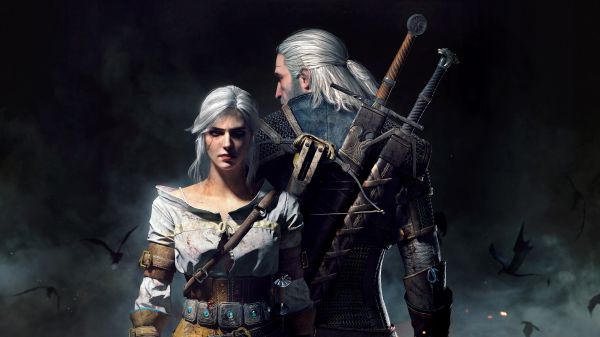
Post a Comment